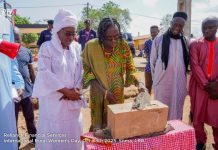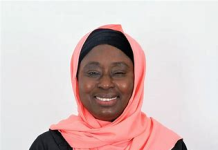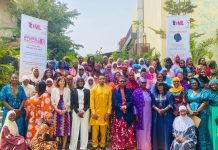With Sarjo Camara-Singateh
In this edition of Women and Development, we bring you issues affecting women during election period. The next presidential  election is drawing near – just December 1, 2016. This is a time for each voter to take stock of the past five years and come up with a decision that will serve the interest of our dear nation.
election is drawing near – just December 1, 2016. This is a time for each voter to take stock of the past five years and come up with a decision that will serve the interest of our dear nation.
Women are part and parcel of the society. The era of clapping and dancing in the political arena while we remain back stage should be a thing of the past. This is why the Constitution asserts in section 26 that every citizen of The Gambia of full age and capacity (man or woman) has the right to take part in the conduct of public affairs, directly or through freely chosen representatives. In short, women have the right to vote and stand for elections at genuine periodic elections for public office.
Furthermore the rights of women are protected by the Constitution.
“(1) Women shall be accorded full and equal dignity of the person with men.
(2) Women shall have the right to equal treatment with men, including equal opportunities in political, economic and social activities.”
Due to traditional beliefs and customs women face many challenges in vying for elective positions. Hence until such time when equal access and facilities are available to all irrespective of gender proportional representation and gender parity are necessary. Activists need to call on politicians when elected to introduce Gender parity for the filling of Cabinet posts. They should also introduce proportional representation for a given number of the seats in Parliament, so that the remainder will always be balanced by gender parity in the preparation of the selection list for the occupants of those seats.
When we come to peace building and decision making position, the potential of women was under estimated because of cultural and social indoctrination of the society towards women.
Now in present day development and civilization many have understood the importance of women in peace building and decision making. The reason is that when there is war and instability women and children are the victims of circumstances and injustices; they are raped, killed and kidnapped.
A conscious woman will never wish for war or instability. Women now are executing different functions at peacekeeping, women journalists are in the forefront reporting on issues that arise from the war zones or unstable situations.
They lobby with politicians from different political parties including the incumbent making sure that their elections are violent free. These women formed a “women situation room” in their various countries at different election periods to make sure that their elections are held smoothly and freely. These kinds of organisation and mobilisation do not mean that we plot against any regime but to protect women and the country at large. Another important part of this move is that to give support to women candidates who are ready to accept all sorts of insult and humiliation just to prove that women should stand up and be counted.
On the faith/religious side women have visited praying grounds to pray for peaceful elections in their countries to seek for the Almighty’s intervention. They also document any incidence during campaign, Election Day and post election period to held the authorities accountable and to make sure law and ordered is executed.
Women in the Gambia have to come to the drawing board to map out a way for the Gambia and it populace. Women are an important part of the society especially in The Gambia. Our powers are our votes, but oneness is important in anything we are doing in the name of women.
Who should protect Gambian women during election periods, we should have been protected even before elections. Our right to be protected is guaranteed in the constitution, the African Charter on Human and Peoples’ Rights and other international instruments; and women should seek protection from these instruments.
The African Charter on democracy, elections and governance article 39 states that state parties shall promote a culture of respect, compromise, consensus and tolerance as a means to mitigate conflicts, promote political stability and security,


















